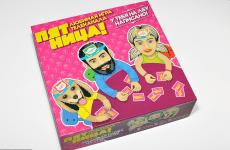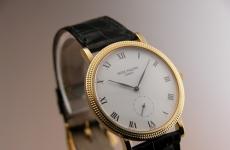The project "May 9 Victory Day" when the sun's rays were just about to illuminate the earth on the western border of the USSR, the first soldiers of Nazi Germany set foot. Project "Victory Day"
Department of Education, Culture, Sports and Youth Policy of the ZATO Administration of Zaozersk (Management OKSiMP) Municipal preschool educational institution Kindergarten general developmental type No. 3 "Sun" (DOE No. 3)
Teacher of the preparatory group for school No. 2 Mikerova Natalya Grigorievna
PROJECT PASSPORT
- Project type by quantity: group
- Content: integrative
- duration: short term
- By the dominant type of project activity: information and research
Project participants:
- children of the preparatory group for school, parents, educators, music director.
Implementation period:
- April 28, 2016 - May 06, 2016 (1 Week)
Project relevance
There is no family in Russia that the war bypassed.
Therefore, on this day, every family remembers those who remained on the battlefields, and those who established a peaceful life after the war. They also congratulate the soldiers of the Great Patriotic War who live today, and there are fewer and fewer of them. It was they who stood to the last - defending the Motherland.
They stood and survived. And those who were not taken to the front forged victory in the rear. The women who replaced the departed men built tanks and planes, plowed and sowed, and also raised children, saved the future of the country. That is why Victory Day is truly a national holiday.
It is very important to remember the history of your Motherland, especially its sad and iconic pages.
The topic of war is extremely relevant in modern society, contributes to the unification, rallying of our people. Victory Day is close and understandable to children preschool age, because it implements a fairly simple, clear idea known to them from fairy tales - the idea of confrontation between good and evil and the final victory of good. A patriotic feeling does not arise by itself - it must be brought up in a child. The task of educating patriotism is currently difficult.
Raising a child is the basis for the formation of a future citizen. To achieve a certain result, you need to use unconventional methods impact on the child, on his emotional and moral spheres, which would harmoniously and naturally fill his worldview with moral content, would reveal new, previously unknown or incomprehensible sides of the surrounding reality to the child and would be accessible to perception.
Therefore, a lot of work on educating patriotic feelings in children must be carried out in preschool educational institutions.
OBJECTIVE OF THE PROJECT:
- Formation in children of a civic position, patriotic feelings, love for the Motherland, a sense of pride and respect for relatives and friends (in the context of the country's history) based on the expansion of children's ideas about the heroic victory of our people in the Great Patriotic War.
- Clarify knowledge about the Victory Day holiday, why it is so named and who is congratulated on this day.
- The formation of an active positive attitude among preschoolers towards the glorious defenders of our Motherland: to give children an idea that the people remember and honor the memory of the heroes of the Great Patriotic War of 1941-1945: they compose poems and songs in honor of the heroes, erect monuments.
- To generalize and expand the knowledge of children about the Great Patriotic War: hero cities, military awards (medals and orders)
- To educate the need to protect and perform feats in the name of the Motherland. To form moral and patriotic qualities: courage, courage, the desire to defend their homeland.
- Contribute to the enrichment of the spiritual world of children through familiarization with fiction, the means of musical and artistic and aesthetic education.
- To form an opinion about the inadmissibility of a repetition of the war.
- Organize cooperation with parents, provide support and assistance to families in educating patriotic feelings among preschoolers.
Expected Result
- Children's knowledge of the Great Patriotic War will expand: hero cities, military awards (medals and orders), about children-heroes, examples of the greatest heroism and courage of people in the struggle for the freedom of the motherland.
- A sense of pride in the steadfastness and selflessness of the Soviet people in the Great Patriotic War will manifest itself.
An attentive and respectful attitude of preschoolers to veterans and the elderly, a desire to provide them with all possible assistance will be formed.
- Pupils will form an opinion about the inadmissibility of war.
- Cooperation with parents in the education of patriotic feelings in children will become closer and more productive.
Stages of work on the project
- Preparatory: selection of photographs, photo chronicles, illustrations, fiction, songs of the Great Patriotic War, presentations, didactic games. Survey of children "What do I know?" , "What do I want to know?" , "How to do it?" . Interviewing.
- Organizational (formulation of the problem). The theme of the Great Patriotic War is extremely relevant in modern society, it contributes to the unification and rallying of our people. May 9! Great holiday for our people. A day of joy and at the same time a day of sorrow.
This holiday we congratulate veterans and honor the memory of the dead. For many decades, this tradition has been passed down from generation to generation. And now the veterans are being congratulated by their great-grandchildren.
On the eve of the celebration of Victory Day, a problem arises: how to help the younger generation form in them a sense of duty, a sense of respect for the glorious defenders of our Motherland, a sense of pride in our great people, gratitude for giving us a happy life.
3. Main. NOD, conversations, looking at albums, posters from the Second World War, exhibitions of drawings, creating a panorama of the battle of the Great Patriotic War, panoramas of the Victory Parade with a demonstration of models of military equipment designed by children, reading fiction, learning poems, viewing presentations on military topics, photo chronicles, didactic, role-playing and outdoor games dedicated to the Victory Day.
4. Final. Book of memory design , exhibition design "May 9 - Victory Day" , participation in the song marathon “Oh, the front-line path ...!” , project presentation. Interviewing.
Project development method (model of three questions)
- Implementation of the project in educational areas
- Interaction with parents of pupils
- Joint search for information;
- Collection of documents and photographs from family archives about the participants of the Great Patriotic War;
- Preparation of recommendations for parents "Let's tell children about the Great Patriotic War" ;
- Sliding folder release "May 9 - Victory Day" ;
- Preparation and reading together with children of letters from the front.
- Book of memory design "Thank you for being us!"
- Setting up a group exhibition "Victory Day" .
- Album art "Folk wisdom about military service"
(proverbs, sayings, rhymes).
- Efficient stage. book center.
- Efficient stage. Visiting the exhibition in GDK, TsDOD.
- Efficient stage. Visit to the museum of military glory in the GDK.
- Efficient stage. Didactic games.
- Efficient stage. Memory book.
- Efficient stage. greeting card "Happy Victory Day!"
- Efficient stage. Reading letters from the front.
- Efficient stage. Collective work of children.
List of literature and Internet resources
- Aleshina N.V. Patriotic education of preschool children. M., 2005
- Great Patriotic War.
- Gurina T. F. Patriotic education in the conditions of a modern preschool educational institution
- Children about the Great Victory. Conversations about the Second World War / A. P. Kazakov, T. A. Shorygina, M, 2009
- Dolmatova. E., Telegin M. Talk to a Child about the war, or how to tell a preschooler about the Great Patriotic War? /http://www. p4c. ru/671
- Zatsepina M. B. Days of military glory. Patriotic education of preschool children. M. 2008.
- L.A. Kondrykinskaya. Where does the Motherland begin? M.Creative center "Sphere" 2005.
Thank you for your attention!
In order for students or teachers, parents to prepare a project for the great holiday of Victory Day, which is widely celebrated annually in our country on May 9, you need to find a lot of interesting facts.
Tips on how to do it yourself online project May 9 Victory Day in large numbers can be found on the web. Today, a program for creating your own presentations can be downloaded for free on the network (carefully, you need to do this only from trusted sites). However, for any presentation you need photos (if you like some, you can also download them directly from this material) and Interesting Facts.
Many documentary and fiction books, poems have been written about the Great Patriotic War, many films have been shot and theatrical performances have been made. In this material, we offer interesting facts that can also be used when writing a script for May 9, Victory Day, and not just for thematic school projects.
Useful facts for drafting a project for a schoolchild or teacher on Victory Day:

Also, the teacher must necessarily tell a student of grade 2 or older that on the first day of the war, young guys who were barely 17 years old went to the front. Of the 100 guys of this age (17-20 years old) who went to the front, 97 people did not return!

Also special attention You can pay attention to the blockade of Leningrad, which lasted 900 days, people received only 125 grams of bread a day there and lived under constantly falling bombs and shells. Here is a list that will complement the presentation.
The holiday of May 9 is sacred for every person in our country. Because there is not a single family that did not suffer from the war: someone's relatives died at the front, someone lived in evacuation, everyone experienced hunger, deprivation and fear. On this day, the liberation of the country and the world from fascism is celebrated, and children are the future generation in whose hearts the memory of the war will remain, which they will then pass on to their children and grandchildren. It is important to remember the horrors of war in order to prevent them from happening again, in order to valiantly guard the borders of your country and the peaceful sky above your head.
Attention! The site administration site is not responsible for the content of methodological developments, as well as for the compliance of the development of the Federal State Educational Standard.
The project "May 9 - Holiday of memory and glory" is designed for children middle group within the framework of the 70th anniversary of the Great Victory. The applications present a joint research children, parents and educators (Book of Memory), and creative works (Homemade books about the war). The experience of working on the project in the form of a presentation is presented, the scenario of the family holiday “May 9 is a holiday of memory and glory”, recommendations to parents “How to tell a child about the war”, “Reading children about the war”, “How to make a homemade book” are given. The application also includes a questionnaire for parents and a booklet "Homework for working with children." Project presentations will help colleagues get acquainted with the works of Altai writers on a military theme and with the work plan for the project.
Project type: information-practice-oriented, creative.
Members: pupils of group No. 3 "Fairy tale", parents of pupils, educators.
Project period: February - May.
Project relevance
The "National Doctrine of Education" emphasizes that "The education system is designed to ensure the education of Russian patriots, citizens of a legal democratic, social state, respecting the rights and freedoms of the individual, possessing high morality, and showing national and religious tolerance."
Patriotic education is necessary for any people, any state, otherwise they are doomed to death.
To form a moral foundation and help the child successfully enter modern world, it is impossible to take a worthy place in the system of relations with others without cultivating love for loved ones and one's fatherland, respect for the traditions and values of one's people, kindness and mercy.
Unfortunately, the younger generation more and more often has a superficial understanding of the events of the country's historical heritage.
In our age modern technologies children from preschool age are more interested in computer games, cell phones, Western-made films and are not at all interested in the life of the history of their country. Familiarization of preschoolers with the heroic deed of the Soviet people in the Great Patriotic War is one of the tasks of patriotic education. The ideas of preschool children about the defenders of the fatherland, about the heroic events taking place in the country, are very superficial, fragmentary. Without sufficient knowledge and ideas, it is difficult to form a respectful attitude towards the Motherland, a sense of pride and patriotism for one's people.
The truth is known: what is inherent in a person at the beginning of life will remain forever. It is in childhood that it is important to nourish with lofty human values, to generate interest in the historical past of Russia, in its heroes (participants of the Great Patriotic War, heroes of the home front), to form the desire to be like them, to help them.
Experience shows that preschool educational institutions actively work on the formation of patriotic feelings in children. This year, education teachers are doing a lot of work on patriotic education related to the 70th anniversary of the Great Victory. And I want to see a lively response in the eyes and souls of children. How to achieve this? How to reach their hearts? How to do so, to arouse interest in their souls?
Problem
How can children be encouraged to become interested in the heroic past of our country, the feat of the Russian people in the Great Patriotic War.
Hypothesis
If we use an integrated approach to familiarize preschool children with the Great Patriotic War, this will help expand their understanding of the significance of celebrating Victory Day, and instilling the beginnings of patriotic feelings.
Objective of the project
Creation of conditions conducive to the patriotic education of children and the formation of a system of ideas in children of senior preschool age about the heroic history of our country, the feat of the Russian people in the Great Patriotic War.
Project objectives
- contribute to the enrichment of children's ideas about the events of the Great Patriotic War, the feat of the people through different types activities;
- create pedagogical situations that require the manifestation of civic behavior and patriotic feelings among project participants;
- create conditions for the development of interest in the search and research activities of the participants in the project to study the history of their families during the Second World War;
- promote the development of a sense of patriotism, pride and respect for our heroic ancestors, defenders of the Fatherland.
Main stages of work
1. Preparatory stage
Topic |
Tasks |
Activity |
Diagnostics |
Determine the relevance of the chosen topic and the level of interest of the project participants. |
|
Motivation to participate in the project |
Awakening interest in participation in the project of children and parents |
|
Creation of the information environment |
The study and selection of program-methodological and cognitive material on the formation of a system of ideas about the heroic history of our country, about the Great Patriotic War |
|
Enrichment of the subject-developing space of the group |
To create conditions and environment for children that contribute to arouse a desire to know the events of the Second World War |
|
2. Research phase
Topic |
Tasks |
Activity |
"Military equipment" |
To acquaint with the types of troops and samples of military equipment |
|
"War Bread" |
To enrich children's ideas about the significance and value of bread in the difficult war years |
|
"Memorable Places" |
To expand children's ideas about the memorable places in Russia, their hometown, dedicated to the participants of the Great Patriotic War |
|
"War through the eyes of artists, poets, musicians" |
Explore WWII art |
|
"Heroes of WWII" |
Arouse the interest of the project participants in searching for information about the history of the military path of relatives who fought on the fronts of the Great Patriotic War, historical documents - award lists and orders for awarding relatives. |
|
"Symbols of victory: orders, medals" |
To acquaint children with military awards that were awarded to soldiers during the Second World War |
|
"Tie, if you remember!" |
To introduce children to the symbol of Victory Day, to tell about the history of the emergence of the St. George ribbon. |
|
"Soldier's Triangle" |
contribute to the formation of ideas about the history of correspondence, about the letters of the war years, as an integral part of the history of our people. |
|
"Victory Day" |
|
3. Final stage
Topic |
Tasks |
Activity |
Memory Book |
Systematize and formalize the accumulated material about veterans of their families |
|
Create conditions for holding a joint holiday, contribute to the awakening of a sense of joy from what has been done joint work |
|
|
Photo sketch "We don't need war" |
Present the work on the project in the form of a photo presentation |
|
Exhibition of handmade books |
Presentation of joint creativity of parents and children |
|
Participation of pupils in various competitions and promotions, projects dedicated to the 70th anniversary of the Victory |
Providing an opportunity for implementation creativity and expressions of the civil position of the project participants |
|

MKOU Shatunovskaya secondary school
Completed by: creative team of the 2nd grade.
Head: Snegireva Lyudmila Vladimirovna

Project « MAY 9 - VICTORY DAY » project participants

* Cultivate civic-patriotic feelings.
*Experience a sense of pride in the feat of the people in the Great Patriotic War.
- Expand knowledge about the Great Patriotic War.
- To promote the formation of interest in the history of their homeland.
- To form moral and patriotic qualities: courage, courage, love for the motherland, pride in one's country.
* Develop cognitive abilities in the process of practical activities.
- Develop creative abilities.

Many decades have passed since the terrible war ended. The defenders of the motherland are dying, there are fewer and fewer of them every year. But we must not forget about the war, it must be remembered by all generations, we must not forget the feat of our grandfathers. And if people know what war is, they will be merciful, prudent and wise, then there will be fewer wars.
Creating a project about the Great Patriotic War, we tried to feel all the hardships of the war in order to understand the whole tragedy of our people, admired the exploits of Soviet soldiers and felt pride in our people.

Are there any heroes of the Great Patriotic War among these people?
What feats were accomplished by these people during the Great Patriotic War?
What feats did our countrymen accomplish during the Great Patriotic War?

The Great Patriotic War... We know about it only from stories, movies. But we must carefully keep in memory the feat of people who defended our freedom and gave us life.

Sociologists
Designers-
decorators
Spend
questionnaire,
talking
with a teacher.
sorted
drawings
Historians
study
literature,
take away
necessary
information.


This year our people are celebrating
70th anniversary of the Great Victory.


pioneer holiday



I'll come back to you mom
Wait, dear, son!


May 9 is a national holiday. Soldiers fought, and women raised children - the future of the country. By common efforts, victory over the enemy was achieved!







For many of today's boys and girls, the Great Patriotic War is a distant past. The past that they know about from the stories of their grandfathers or learn about the war from films and books.
We learned about our countrymen - WWII veterans

SAVINOV MAXIM MIKHAILOVICH
15 / 02 / 1924
Born in the village of Zhuravlikha Altai Territory in a peasant family. From 1940 to September 1942 he worked at the Barnaul plant. Before the war, he made wagons, but as the war began, the workshop was converted into a foundry where shells were poured for the front.
In September 1942 he was drafted into the army in the 5th training cavalry regiment of the Novosibirsk region, Tatarka station. The war began in the city of Bryansk, ended in the city of Bialystok, Poland.
During his stay at the front, he participated in military operations, where he was wounded. After treatment in the hospital, he was sent to the anti-aircraft artillery of the 6th regiment in Belarus. From 1944 to 1947 he was in Poland.
Victory Day met in Poland, the city of Sieradz.
He was awarded the medal "FOR VICTORY OVER GERMANY IN THE GREAT PATRIOTIC WAR 1941-1945."
NERODA BORIS EFIMOVICH
PRIVATE 6 / 0 7/ 1927
Born in the Volyn region of the Kamen-Kashirsky district. There were 10 people in the family. He graduated from only 5 classes, studied secondary. In 1942, when he was 15 years old, he was taken to the partisans. Served in the United Central Base near Minsk. All the brothers were partisans. At the denunciation of the provocateurs, the mother and elder sister were shot, the father was hanged. Then the brothers swore to take revenge on the enemy. Ten echelons and two bridges were blown up, three brothers were killed. Boris Efimovich remained with his younger brother and sister. In Lutsk he was a liaison officer, through him information was transmitted to the underground.
Once, Boris Efimovich recalled, such an incident occurred: the Germans attacked a detachment of the village of Troyanovka, the inhabitants, having learned in advance about the attack, went across the river. A few hours later I was sent to see if the Germans had left. It seemed to me that they left, but it was a mistake, they hid. When the inhabitants returned to the village, they were surrounded and shot, I managed to escape. Two weeks later, I learned that 450 people had died, only three survived - me and a woman with a baby.
In 1944 he was taken into the ranks Soviet army. He served in the infantry, had no ranks. Participated in the battles for Poland, in the crossing of the Bug.
After the war, he worked as a carpenter and driver.
In 1961, he met his future wife, Poptsova Anna Nikolaevna, in Mezhdurechensk. In 1965 they got married, lived in Mezhdurechensk for two years, then left for Kazakhstan, and 11 years later they arrived in the village of Shatunovo.

KITAYTSEV AFANASIY YAKOVLEVICH
SCOUT
08/1/1919 - left for the Pavlovsky district on 10/26/1994
Born in Shatunovo, graduated from the 5th grade. In 1937 he worked as a tractor driver. In 1939 he was called up for active service in the Pacific Fleet, he served in the north of the Chukotka Peninsula, on a border boat, Provision Bay. From the army in 1941 he went to the front. In May 1942 he was transferred from Primorsky Krai to marines near Stalingrad. November 7, 1941 defended Stalingrad, was wounded. Then the regiment was transferred to the Central Front in the army of Rokossovsky. For the extraction of "language" and courage in the battles near Kharkov, he was awarded the ORDER OF THE RED STAR in 1943. In August 1943, near Kharkov, he was wounded a second time. The wound was very severe, in the head, he lay unconscious for a month and a half. Spent 8 months in a hospital in Tambov. On January 14, 1944, he was demobilized home due to unsuitability for military service. In the village he worked as a military instructor, was awarded the medal "FOR THE DEVELOPMENT OF VIREL LANDS".
He was awarded the medal "FOR VICTORY OVER GERMANY IN THE GREAT PATRIOTIC WAR 1941-1945. » .

MERKUCHEV NIKOLAI IVANOVICH
PRIVATE, INFANTRY
22/12/1911-2/08/2009
Born in the Kirov region, the village of Maksimovka. Before the war, he worked as a lumberjack in a forest plot. Called to the front on September 20, 1941, he ended up in the 61st Rifle Brigade. January 26, 1942 was seriously wounded in the arm. He was in a hospital in the city of Nizhny Tagil. On May 15, 1942, he was dismissed due to injury. Was on the defensive. There were no memorable battles.
Awarded with medals:
"FOR COURAGE"
"FOR THE VICTORY OVER GERMANY IN THE GREAT PATRIOTIC WAR 1941-1945"
ZHUKOV medal
JUBILEE MEDALS

Poems dedicated to Victory Day
Even then we were not in the world, When you came home with Victory. Soldiers of May, glory to you forever From all the earth, from all the earth! Thank you, soldiers, for life, for childhood and spring, for silence, for a peaceful home, for the world in which we live! (M. Vladimov)








1. During the implementation of the project, we formed the initial ideas about the Second World War, the soldiers who defended their homeland, about the Russian army, a reliable defender of our homeland, about the May 9th holiday.
2. Organized an exhibition creative works"Glorious Victory Day"
3. They laid flowers at the monument to the Unknown Soldier.






